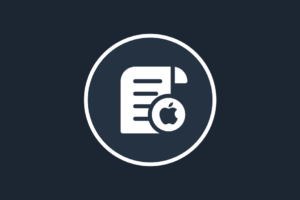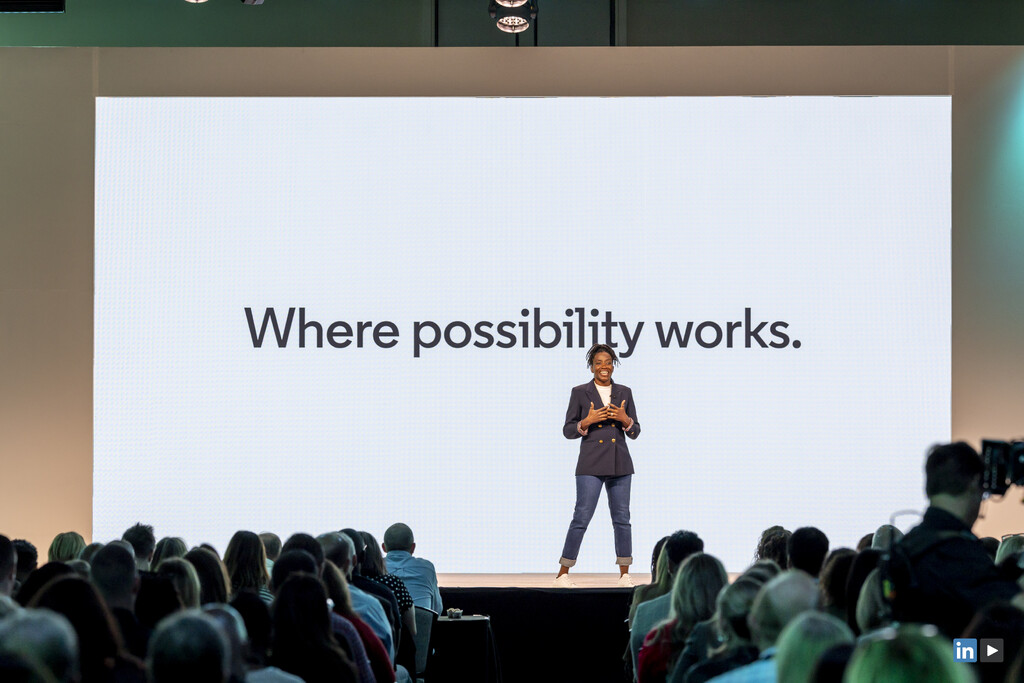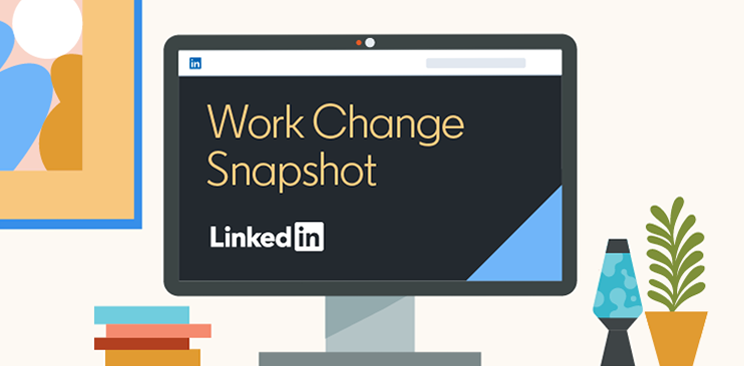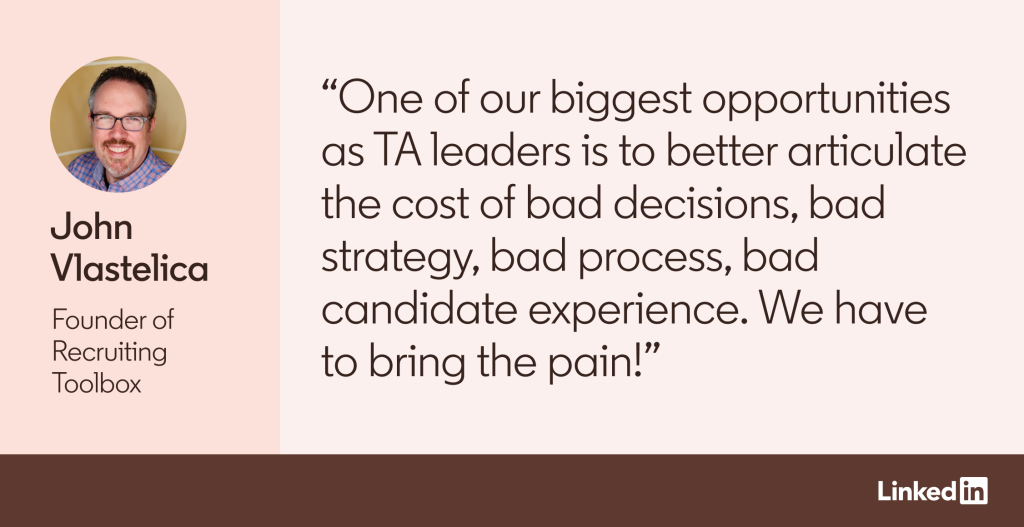But the bigger issue is what’s cheating in 2024 and beyond? We’ve all used spell-check, calculators, XLS formulas, PowerPoint templates, and maybe even data visualization tools to make our charts look better. And, for developers, it’d be unusual and super-inefficient not to use code from code repositories. Those things have all been pretty normalized as not cheating for years now.
We need a company-wide point of view
I’m worried, though, that companies don’t have a point of view on this. I’m worried that we’re letting each recruiter or hiring manager or interviewer decide what cheating is — and isn’t. And that candidate A may get hired but candidate B doesn’t get hired — both equally qualified, both using AI to assist them — because of a decentralized “it’s up to each hiring team” approach.
We need a company-wide point of view.
I’m especially concerned about false negatives — missing out on someone who would have been good, but was disqualified because we didn’t communicate what’s OK and not OK to use when prepping for and completing the interview process.
And I’m also concerned about hiring unqualified people who cheat. Interview lies and fraud have existed long before the internet, but it’s now easier than ever for a candidate to cheat and show up more qualified than they really are, with a high risk of hiring someone who is both low integrity and unqualified to do the work. The recipe of faked resumes/profiles + automated company screening + pre-interview, asynchronous assessments + remote interviews + remote work — all with AI assistance — should have us all a bit nervous about identity verification and skills verification.
Now, I’m not negative on tech. It’s a great time to be alive. And I love the AI I’ve seen so far. I do think the role of the recruiter has been evolving — and will evolve quickly in 2024 and 2025 — as AI is embedded into all of the tools we use.
And I’m not worried that this issue has already exploded. It hasn’t. Yet.
The business needs our leadership on this
We have an incredible opportunity to play a bigger leadership role around AI and assessment and fairness.
Tech is — or soon will be — forcing companies to articulate a point of view on what cheating is and isn’t. (Side note: This same discussion is happening in elementary and secondary schools as well as universities. I had a conversation a few months ago with a department chair in the school of business in a regional university, and they’re trying to decide if they’ll need to move to live, old-school, pen-and-paper tests or oral, no-tech-allowed tests like it’s the 1960s!)
You may say, but John, I’ve already got an opinion on this. I think X. Great. The question is, though, whether your opinion X is shared across your talent team, across the hiring managers, across the interviewers, across HR, and across your executives.
We do a lot of work helping companies define their hiring bar (we’ve done this work for all kinds of companies, from LinkedIn to Uber to EA Games to Starbucks). Starting now, we’ll help companies articulate a company-wide point of view on what is and isn’t cheating.
This is a call to action — not a call to panic. Have the conversation with your boss and with key execs. Get a sense of your principles around candidate assessments and remember to consider access and fairness (not all candidates have access to AI tools, just like not all candidates have access to career coaches and university test prep courses). And then propose some principles, socialize them, get buy-in, and embed them into your hiring manager training and recruiter training.
John Vlastelica is a former corporate recruiting leader turned consultant. He and his team at Recruiting Toolbox are hired by world-class companies to train hiring managers and recruiters, coach and train TA leaders, and help raise the bar on who they hire and how they hire. If you’re seeking more best practices, check out the free resources for recruiters at TalentAdvisor.com and for recruiting leaders at RecruitingLeadership.com.
Copyright Recruiting Toolbox, Inc.










